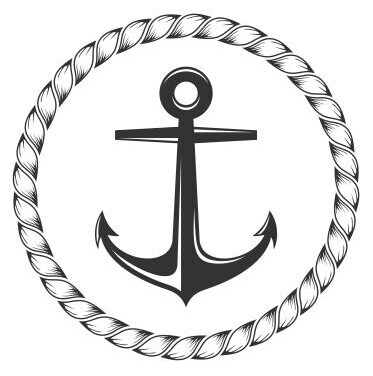@catboy
Active 3 years, 8 months ago- ★★
- 2 STAR
- Contributions: 51
-
Admin started the topic Moderating nautical forum in the forum Feedback / membership Support 4 years, 7 months ago
We seek sg deck officers to assist in the Nautical forum. We appreciate everyone who made contributions, and hopefully a moderator to moderate the nautical forum.
-
Admin's profile was updated 4 years, 7 months ago
-
Admin and
 Moonraker are now friends 4 years, 7 months ago
Moonraker are now friends 4 years, 7 months ago -
Admin started the topic New forum for interest groups. in the forum Feedback / membership Support 4 years, 7 months ago
Dear friends, We are open for suggestions for any interest groups. Free free to suggust, so that i can insert the forum for discussions!
-
Admin replied to the topic Our cadetship true stories in the forum Before cadetship 4 years, 8 months ago
Contribution from a Fourth Engineer currently onboard:
Working in the engine room includes enduring the heat which is typically above 35degreesC. Completely drenched overalls. Sweat from other crew dripping on your arm while working together. Climbing the countless torturing steps. Adapting to the language barriers thus trying to understand the…[Read more]
-
icedcappucino started the topic Introduction to cranes in the forum Deck Machineries 4 years, 8 months ago
The vessel are normally outfitted with electrohydraulic cranes. C/O must give proper training to the crew for operation of the crane. Vessel should have one set of hydraulic hose at all times. Hydraulic rams should be greased once in 3 months. This to prevent oil seals from salt and debris deposits on the hydraulic Rams. Prior operation of the…[Read more]
-
icedcappucino started the topic Introduction to winches and windlass in the forum Deck Machineries 4 years, 8 months ago
Anchoring, mooring equipment and fittings are to be well maintained to enable safe towing and mooring operations.
The upkeep of the deck machinery is a joint responsibility of the deck and engine departments. As demarcation of the work involved, it may be taken that the engine department is responsible for the winches with regard to the…[Read more] -
icedcappucino started the topic Introduction to A/C and Ref. in the forum Air/Con & Refrigeration 4 years, 8 months ago
Accommodation climate is to be maintained at comfortable level. Air conditioning should accordingly done to adjust to hot/cold weather conditions. CE must ensure that the A/C compressor is being operated and maintained in good order and system is free of leaks. CE must take daily rounds of AC room to verify proper operation of A/C plant and air…[Read more]
-
icedcappucino started the topic Introduction to Air Compressor in the forum Main Air Compressor 4 years, 8 months ago
Air compressors are to be operated and maintained as per maker’s recommendations. CE to ensure that all the engineers are familiar with operation of air compressors and line up of the pneumatic system Watch keeping engineer must ensure that compressor unloaders are operating properly and are not leaking. CE must ensure that LO consumption is w…[Read more]
-
icedcappucino started the topic Introduction to purifier in the forum Purifiers 4 years, 8 months ago
Purifiers are high speed rotational centrifuges and are to the handled with utmost care during operation and maintenance. Follow maker’s manual for proper starting, operation and maintenance. Some of the common guideline applicable to all the purifiers are listed below:
1. During starting observe purifier for any signs of vibration. In case of a…[Read more] -
icedcappucino started the topic Positive displacement pump in the forum Pumps 4 years, 8 months ago
Positive Displacement Pumps
These pumps work on principle of trapping the fluid and pushing it forward/out. Fixed volume of fluid is trapped in suction side and pushed/squeezed to the discharge side. These pumps can be:
1. Reciprocating type.
2. Gear type.
3. Vane type.
4. Screw type.
5. Diaphragm type.
Since these pumps work on moving fixed…[Read more] -
icedcappucino started the topic Centrifugal pump in the forum Pumps 4 years, 8 months ago
These Pumps produce a head and a flow by increasing the velocity of the liquid that passes through the machine with the help of the rotating vane/ impeller. Pump impeller traps the liquid and accelerates the fluid. The casing of pump is designed to convert the rotation kinetic energy to hydrodynamic energy of flow (pressure). The amount of flow…[Read more]
-
icedcappucino started the topic Soot Fire in EGB/EGE in the forum Boilers 4 years, 8 months ago
SOOT FIRES CANNOT OCCUR IN A HEAT EXCHANGER WHICH IS FREE OF SOOT DEPOSITS
Soot deposits occur in diesel engines running on heavy fuels generally when running at light load, or when manoeuvring where no exhaust gas bypass exists. These deposits may also contain excess cylinder lubricating oil and are highly susceptible to ignition once engine…[Read more]
-
icedcappucino started the topic Introduction to EGB and EGE in the forum Boilers 4 years, 8 months ago
It is the responsibility of the Chief Engineer to ensure that all members of the Engine room Staff are familiar with the procedures for the safe operation and maintenance of the exhaust gas boiler/economizers. Principles of safe operation, such as ensuring that valves and mountings are operational and correctly set and the necessity to warm…[Read more]
-
icedcappucino started the topic Introduction to Boiler in the forum Boilers 4 years, 8 months ago
OPERATION
During anchorages and port stays, aux boiler is to be run in auto mode. Ensure the pilot burner and main burner are in good condition and ensure exhaust gas is not SMOKY. Smoke sensor where fitted should be monitored. HFO temp at burner inlet to be checked from the FO analysis report. Local regulations regarding type of fuel/ Sulphur…[Read more] -
icedcappucino replied to the topic Boiler flash up procedure in the forum Boilers 4 years, 8 months ago
PRECAUTIONS PRIOR TO LIGHTING BOILERS
The Engineer Officer in charge of this process must ensure that procedural checks are carried out. These include but not limited to:
• That all system valves and boiler mountings are operational and correctly set.
• That the boiler is filled to the requisite level to allow for expansion with correctly dos…[Read more] -
icedcappucino started the topic Introduction to Aux Engine in the forum Main & Aux Engine 4 years, 8 months ago
STARTING PROCEDURE
The below instructions are to be followed whenever starting a diesel generator under normal circumstances. The remote starting must also be frequently tested to ensure that it is in order. The generator engines will normally be set for automatic starting and must be in this position before the engine room operates in an unmanned…[Read more] -
icedcappucino replied to the topic Main engine slow steaming in the forum Main & Aux Engine 4 years, 8 months ago
The purpose of this procedure is to provide guidance on the minimum continuous running speeds of the main engine.
Chief Engineer shall:
• Advise the Master of minimum safe continuous running speed of the main engine.
• Inform engineering staff of operating conditions.
Duty Engineer shall:
• Monitoring main engine running parameters.
• Ensure…[Read more] -
icedcappucino replied to the topic Oil mist detector maintenance & Crankcase relief valve regulation in the forum Main & Aux Engine 4 years, 8 months ago
OIL MIST DETECTOR
All alarms from oil mist detectors, no matter how suspect the instrument may be, are to be treated as an emergency situation and the engine stopped. Alarms must be reported to the Office immediately. Remember there are no false alarm. Alarm will be activated only if the conducive alarm condition is generated. If the equipment is…[Read more] -
icedcappucino started the topic Introduction to Turbocharger in the forum Main & Aux Engine 4 years, 8 months ago
TURBOCHARGERS
Turbochargers must always be in good condition to obtain the expected engine performance and meet current emission standards. Turbochargers can be pulse type, constant flow type, jet assist type. Refer to the maker’s manual for proper operation and maintenance. Ensure that turbocharger air intake filters are maintained clean at all t…[Read more] - Load More


